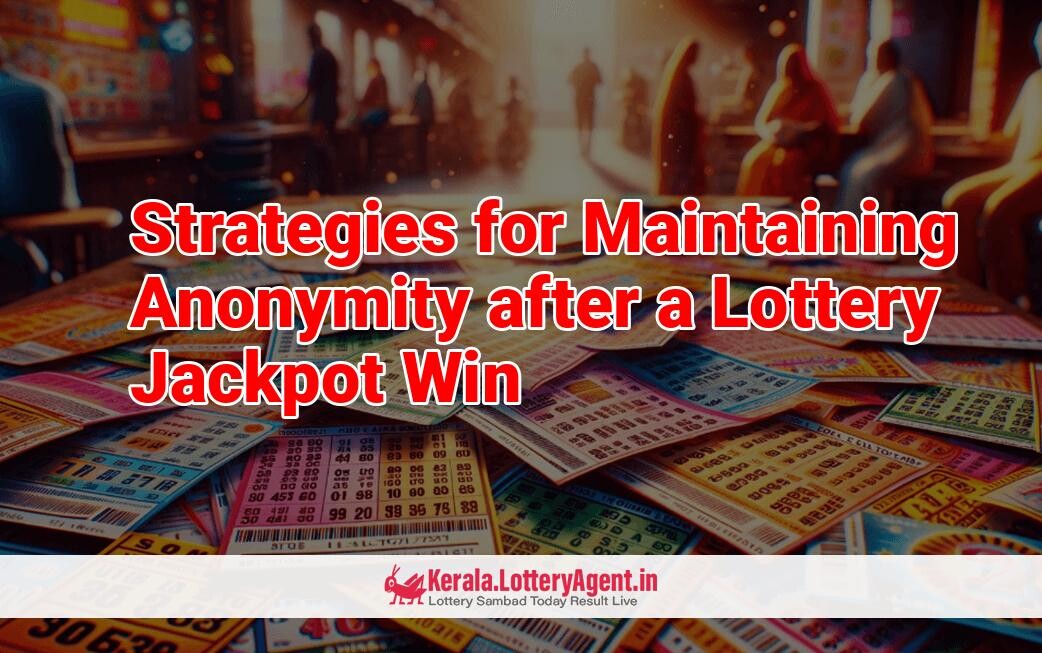
Winning the lottery is a dream come true, but along with the euphoria, there is a pressing concern that often goes unspoken: the challenge of maintaining privacy. The moment your windfall becomes public, the floodgates open to an overwhelming deluge of inquiries from family, friends, and a sea of unknown faces. Privacy becomes a prized commodity, one that you can preserve with the right strategies.
The quest for peace of mind starts with understanding the rules about anonymity, which vary widely. This article provides an in-depth guide to navigating the waters of privacy following a lottery jackpot win.
Before claiming your lottery prize, it’s imperative to scrutinize your state’s laws concerning anonymity. Some states are accommodating, allowing lottery winners to keep their names under wraps, while others demand full transparency. If your state stands in the latter group, legal counsel may illuminate alternative pathways to protect your identity.
Knowledge of your state’s lottery commission rules is essential. These regulations detail the options available to winners regarding anonymity, prize claims, and public disclosure. Armed with this information, strategize accordingly to keep anonymity intact.
For those who’ve determined that anonymity is viable, the immediate next step is to sign the back of your winning ticket. This simple act of signing safeguards your claim to the prize, ensuring that the ticket cannot be wrongfully cashed should it go missing or fall prey to theft.
The digital realm offers added security for online lottery participants, as their tickets are stored safely in their accounts. Offline players, however, bear the responsibility of keeping their physical tickets secure — a task recommended to accomplish by making signed copies and utilizing a safe deposit box or personal safe.
Winning the lottery can entangle you in a web of financial and legal complexities, necessitating the expertise of lawyers and financial advisors. Their guidance can help you establish a trust or another legal entity to claim your prize discreetly, thus shielding your identity.
A low profile is your ally. By avoiding social media flaunts and casual chatter about your win, you reduce the risk of attracting attention. Instead, adopt privacy as a policy; when probed, vouch for the importance of safeguarding your personal life.
Anonymity can also come through the formation of a trust. By claiming winnings through a revocable trust, winners can potentially protect their information from public disclosure, providing a layer of insulation from the opportunistic and the overly inquisitive.
To increase your peace of mind post-lottery, changing your contact information and address might be advantageous. Should you opt for relocation, choose a living environment that enhances both security and privacy, like gated communities or secluded homes. And ensure that only a trusted few are privy to these updates.
Be wary of scammers who seek to capitalize on your newfound wealth, often requesting money or personal information under false pretenses. Maintain a guarded stance against such requests and seek the counsel of your financial advisor to navigate through the potential pitfalls.
In the United States, 19 states afford the option of anonymity to their lottery winners. Legal provisions in some states even allow for a limited time shield from public exposure.
Countries beyond the US also grapple with the anonymity question. In the UK and across Europe, winners enjoy the freedom to choose anonymity. However, it’s a mixed bag, with many UK winners opting for transparency over the strain of concealment. Canada strikes a different note, requiring public disclosure as a nod to the lottery’s transparency.
Across the ocean, both Australia and New Zealand provide the choice to remain anonymous, allowing winners to manage their windfall in relative obscurity.
While a New Hampshire lawsuit recently spotlighted the tension around anonymity laws, the outcome led to legislative changes in some states, ensuring that winners can maintain their privacy by establishing a trust. Trusts, specifically blind trusts, are an effective tool, providing strict confidentiality and broad discretion over the management of lottery gains.
The table included provides a quick reference for the international landscape of lottery anonymity, underscoring the varying stances on player privacy.
Finally, the most significant takeaway for lottery winners desiring anonymity is this: exercise vigilance and enlist the proper legal and financial help. It may require time and effort to successfully shield your identity, but the result is a serene and unhindered enjoyment of your lottery fortune.











